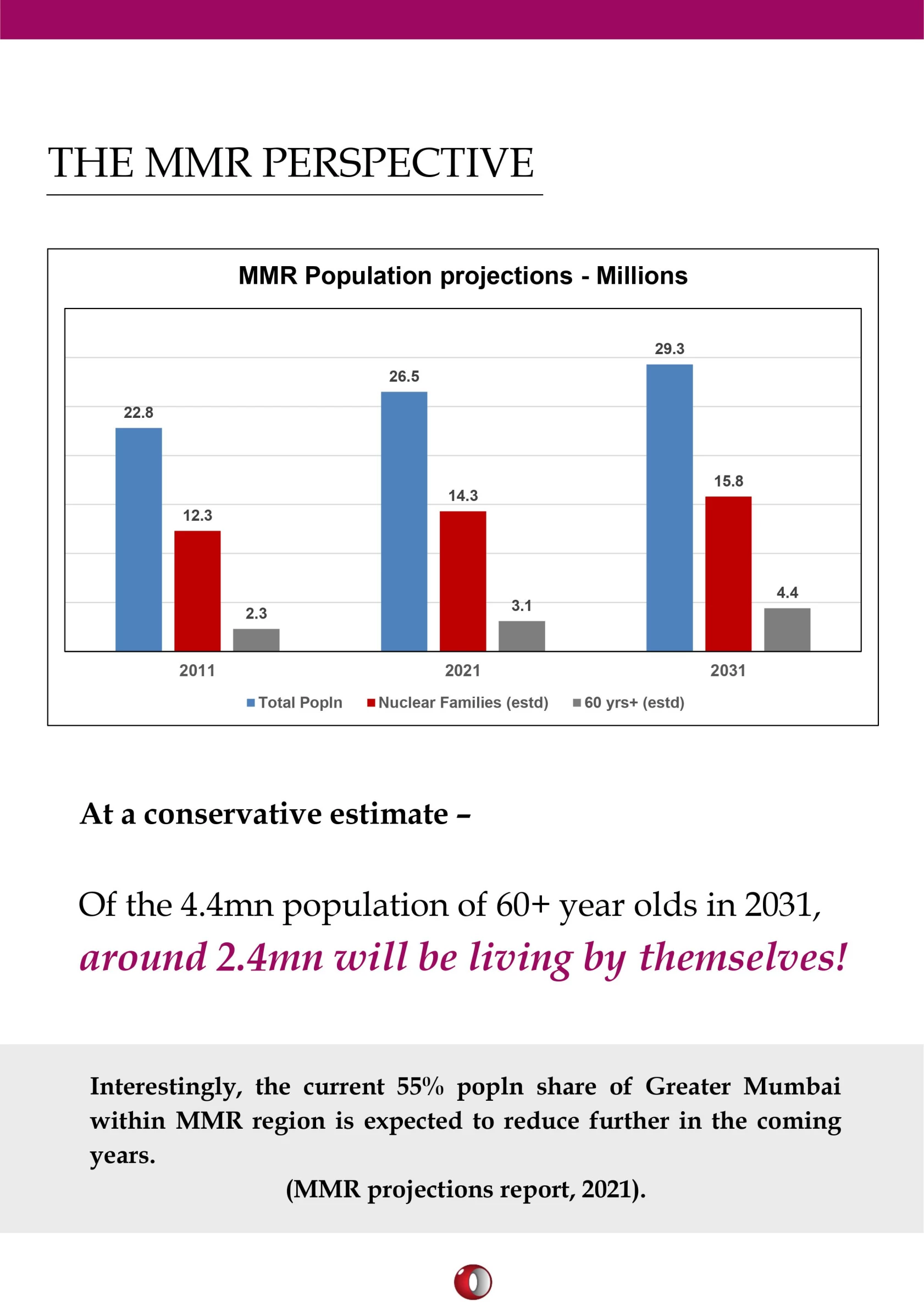
A study pointed out that there would be 2.4 million senior citizens who will be living on their own in Mumbai and its suburbs region by 2031. It further shows how retirees are relooking at their post-retirement plans in recent years.
The report titled 'Expectations of Post Retirement Life' published by Ormax, consumer knowledge forum, delved into the minds of senior citizens from MMR (Mumbai Metropolitan region) to see how they imagined their retired lives.
Among the notable findings of the study, senior citizens in MMR are prepared to live alone in a nuclear environment. Many respondents expressed their belief that they would probably be the last generation to provide care for their aging parents, and did not expect their children to take care of them during their old age. They believe that they themselves need to be prepared financially, physically and emotionally to take care of themselves. They are very pragmatic about this, and do not wish to be a burden on their children or family.
Maharashtra with an estimated population of 125 million has an elderly population share of 11.7%, which is higher than the national average of 10%. It is projected to increase further, to reach a 15% share by 2031.
"Analysing the mind-set of senior citizens in MMR could benefit in creating a congenial living environment. We observed a shift in senior citizens' thinking and by the next decade, it may become a norm for elders to live on their own. Besides real estate, the analysis should be beneficial for designing financial programs related to insurance and even plan corporate benefits for retiring employees,” experts shared.
“Senior citizens may not have been high focus for the realty sector as much as younger buyers. But today, the market seems to offer a big demand owing to the increase in base and changing mindsets,” added the study.
The study also offers crucial cues for property and urban developers:
Respondents averred that a good living abode would help meet the best years of their lives ahead in a peaceful manner. While there were several expectations, the respondents also cited concerns such as the inability to find good, reliable domestic help for doing mundane chores or unseen disruptions to an otherwise peaceful and relaxing life.

With rising income levels and relatively good health, a growing number of Indian senior citizens are now economically independent and willing to actively seek and choose to pay for facilities and services to fulfil their needs. Retired living communities will play an increasingly integral role in addressing these growing Active Ageing needs.
The MMR region is home to several large government corporations like BARC, ONGC, RBI, HP, BP etc. Many of these corporations provide accommodation to their staff until retirement. Many of these employees are expected to retire soon. This makes it a good catchment area for retired living residences.
This report has been compiled by studying secondary data from various government sources, and by conducting primary research in the MMR region.
The Indian 60+ population was increasing faster at 3.8% pa as against 2% pa previously. This is based on the 2011 census where the senior citizen number was estimated at 103 million, accounting for 8.6% of the total Indian population. By 2021, the number has increased to 139 million accounting for 10% of the total population. Life expectancy at birth in India was 69 years in 2014, expected to be 71 years in 2030 and is projected to increase up to 75 years by 2050.





